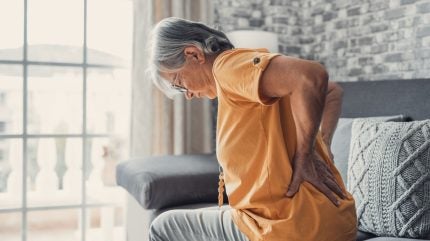
Biopharmaceutical company Angitia Biopharmaceuticals has begun a Phase II clinical trial of AGA2118, a bispecific antibody designed for treating osteoporosis.
The first patient has been dosed in the ARTEMIS study, which aims to evaluate the antibody’s ability to increase bone mineral density (BMD) in postmenopausal women.

Discover B2B Marketing That Performs
Combine business intelligence and editorial excellence to reach engaged professionals across 36 leading media platforms.
The randomised, double-blind trial aims to enrol around 350 postmenopausal women with osteoporosis.
Its primary endpoint is the percent change from baseline in BMD at the lumbar spine at 12 months, with an open-label extension through 24 months.
Secondary endpoints include the percentage change in BMD at other anatomical locations and various time points, as well as changes in biochemical bone turnover markers.
Angitia Biopharmaceuticals chief medical officer Dr Willard Dere said: “The dosing of the first patient in our Phase II study marks an important milestone in the development of AGA2118 for patients with postmenopausal osteoporosis.

US Tariffs are shifting - will you react or anticipate?
Don’t let policy changes catch you off guard. Stay proactive with real-time data and expert analysis.
By GlobalData“The data from this study will build on the first-in-human data on AGA2118 presented recently at ASBMR, which demonstrated rapid and robust gains in bone mineral density.
“We look forward to advancing this novel, differentiated therapy for the treatment of osteoporosis.”
AGA2118 targets sclerostin and dickkopf-1 (DKK1), two key inhibitors of the wingless and int-1 (WNT) signalling pathway in bone metabolism.
By inhibiting these proteins, the antibody aims to enhance BMD gains in patients with osteoporosis.
Angitia Biopharmaceuticals owns the complete rights to the bispecific antibody and is also investigating it in the OLYMPUS programme, which focuses on postmenopausal women at risk of fractures.
The company presented first-in-human data on AGA2118 at the American Society for Bone and Mineral Research’s annual meeting in Toronto, Canada, which took place in September.
In addition to AGA2118, Angitia is conducting clinical trials for three other biologic products.
These are being developed to address conditions such as osteogenesis imperfecta and for use in spinal fusion procedures.





